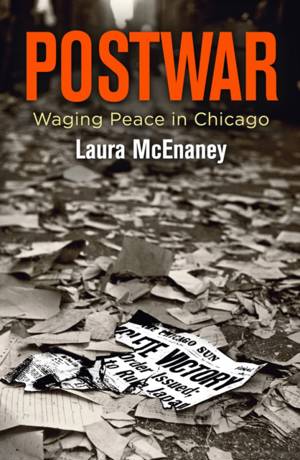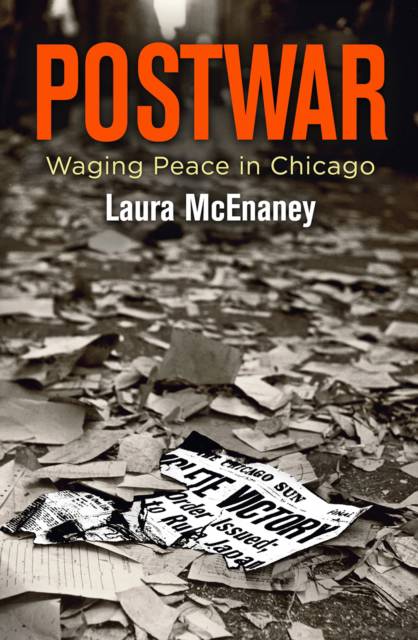
- Retrait gratuit dans votre magasin Club
- 7.000.000 titres dans notre catalogue
- Payer en toute sécurité
- Toujours un magasin près de chez vous
- Retrait gratuit dans votre magasin Club
- 7.000.0000 titres dans notre catalogue
- Payer en toute sécurité
- Toujours un magasin près de chez vous
Description
When World War II ended, Americans celebrated a military victory abroad, but the meaning of peace at home was yet to be defined. From roughly 1943 onward, building a postwar society became the new national project, and every interest group involved in the war effort--from business leaders to working-class renters--held different visions for the war's aftermath. In Postwar, Laura McEnaney plumbs the depths of this period to explore exactly what peace meant to a broad swath of civilians, including apartment dwellers, single women and housewives, newly freed Japanese American internees, African American migrants, and returning veterans. In her fine-grained social history of postwar Chicago, McEnaney puts ordinary working-class people at the center of her investigation.
What she finds is a working-class war liberalism--a conviction that the wartime state had taken things from people, and that the postwar era was about reclaiming those things with the state's help. McEnaney examines vernacular understandings of the state, exploring how people perceived and experienced government in their lives. For Chicago's working-class residents, the state was not clearly delineated. The local offices of federal agencies, along with organizations such as the Travelers Aid Society and other neighborhood welfare groups, all became what she calls the state in the neighborhood, an extension of government to serve an urban working class recovering from war. Just as they had made war, the urban working class had to make peace, and their requests for help, large and small, constituted early dialogues about the role of the state during peacetime. Postwar examines peace as its own complex historical process, a passage from conflict to postconflict that contained human struggles and policy dilemmas that would shape later decades as fatefully as had the war.Spécifications
Parties prenantes
- Auteur(s) :
- Editeur:
Contenu
- Nombre de pages :
- 288
- Langue:
- Anglais
- Collection :
Caractéristiques
- EAN:
- 9780812250558
- Date de parution :
- 02-11-18
- Format:
- Livre relié
- Format numérique:
- Genaaid
- Dimensions :
- 157 mm x 231 mm
- Poids :
- 612 g

Les avis
Nous publions uniquement les avis qui respectent les conditions requises. Consultez nos conditions pour les avis.






